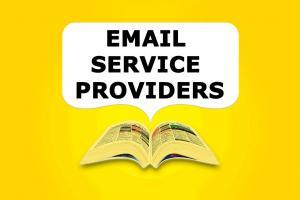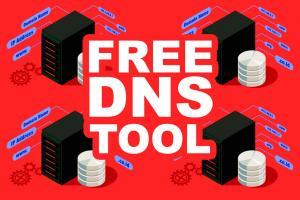Marketing Jobs
Marketing seems simple, but it gets more complex as you break it down. If you don’t already know about marketing careers, scanning jobs online could convince you that this isn’t your dream job. But marketing is fun. Marketing a company is essentially grabbing a bullhorn and saying, “Hey! We love this company, and here’s why you should, too.” Marketing is also incredibly dynamic and diverse. It offers positions for people of all strengths. Whether you’re equipped with creative ability or analytical prowess, marketing’s got a spot for you. In this article, we’ll break down what marketers do. We’ll show you how you can get into marketing and the different marketing jobs that are out there. We’ll give you what you need to map out your marketing career and pinpoint your goals. Let’s get started. According to Merriam-Webster, marketing is “the process or technique of promoting, selling, and distributing
As industries prepare to make changes to marketing personnel in the coming months, marketing department restructures are on the horizon. If you’re facing the pressure to grow revenue through marketing while keeping headcount to a minimum, you’re in luck. We’ve cracked the code on how to structure a high-performing marketing team, and now, I’m going to share those insights with you. In this post, I’ll walk you through what a marketing team structure looks like for small, midsized, and enterprise businesses, which structure will work best for you, and how to make your first or next marketing hire. Marketing Team Sizes First, let’s define what we mean by different company sizes. You may not agree with all of them, and that’s OK; we’re only using these numbers to establish a common lexicon in this guide. Small to Medium Sized Business (SMB): 5-100 Employees Midsized Business: 101-1,000 Employees Enterprise: 1,000+ employees
Marketing seems simple, but it gets more complex as you break it down. If you don’t already know about marketing careers, scanning jobs online could convince you that this isn’t your dream job. But marketing is fun. Marketing a company is essentially grabbing a bullhorn and saying, “Hey! We love this company, and here’s why you should, too.” Marketing is also incredibly dynamic and diverse. It offers positions for people of all strengths. Whether you’re equipped with creative ability or analytical prowess, marketing’s got a spot for you. In this article, we’ll break down what marketers do. We’ll show you how you can get into marketing and the different marketing jobs that are out there. We’ll give you what you need to map out your marketing career and pinpoint your goals. Let’s get started. According to Merriam-Webster, marketing is “the process or technique of promoting, selling, and distributing a product
The line between marketing and digital marketing has blurred. Offline marketing was once considered “traditional” compared to online or digital marketing. However, with many tactics living in the digital sphere, marketing changes as fast as technology does. Traditional marketing, which ranges from radio ads to billboards and magazine spreads, simply adjusted to the new era. Radio ads became podcast sponsorships, billboards turned into web banners, and magazine spreads changed from ink on paper to pixels on a screen. The benefits of this digital transformation are countless. The ability to target the right audience and engage them into action – subscribe, consume, or buy, are just a few examples. Digital Marketing Specialties Are Endless Inevitably, as with any constantly evolving field, specializations change. Today, being a digital marketer is only the beginning. Once you are familiar with the basics, you can find your specialty and niche. Based on your interests and
Choosing the best organizational structure for your company, division, or team is a lot like picking out a new car. At the most basic level, you’re always looking for something road-worthy — something that can take you (and your passengers) from point A to point B without a hitch. But beyond that, there are a lot of options to consider. Automatic or manual? Four-wheel drive or two? Built-in GPS? Leather interior? Flux capacitor? (Only if you’re going back in time, of course.) In the world of organizational structures, the options you have to choose from include things like chain of command (long or short?), span of control (wide or narrow?), and centralization (centralized or decentralized decision-making?), just to name a few. What’s the point of an organizational structure? As a business leader, do you even need one? As I said, org structures help you define at least three key elements…
Marketing is an umbrella term for a wide variety of methods and strategies meant to benefit your business. Your business has different needs that will require different types of marketing efforts. For instance, engaging with your audience and improving sales are related, but still separate goals, so you can’t apply the exact same strategy for both. And if your need is to connect your business and product to other businesses, it will require business-to-business (B2B) marketing. Growing and expanding your business will require a strong marketing plan. Running a business doesn’t require the exact same skillset as marketing a business. Many marketing professionals will specialize their focus on a specific sector, such as B2B marketing. These consultants or agencies utilize their specialization to help businesses improve their marketing strategies. The Benefits of Hiring a Consultant Focusing on a specialty has a lot of benefits compared to having surface-level knowledge of…




![hubspot:-how-to-prepare-for-a-job-in-digital-marketing-and-e-commerce-[google-certification]](https://topdeliverability.com/wp-content/uploads/2022/08/17695-hubspot-how-to-prepare-for-a-job-in-digital-marketing-and-e-commerce-google-certification.png-23keepProtocol)






